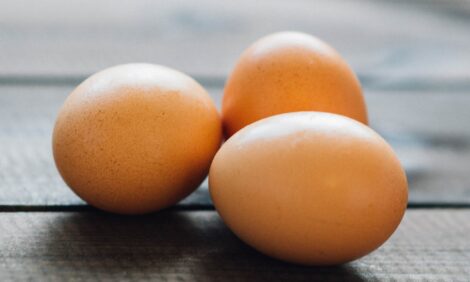



South African Poultry Producers Victorious over Duty Ruling
SOUTH AFRICA - South African poultry producers are basking in their victory at achieving significant customs duty increases on imported chicken. But, they say, the main battle — over alleged European Union (EU) dumping — still lies ahead.According to BusinessDay, CEO of the South African Poultry Association Kevin Lovell said on Tuesday he was "happy with what we got" from the state’s International Trade Administration Commission of South Africa.
"On two of the five categories of chicken — boneless cuts and whole birds — we got what we asked for. On the other three categories — bone-in portions, offal and carcasses — the duty increases were less than we asked for but were acceptable," Mr Lovell said.
But he added that "we won’t have finished our work" until the application against alleged dumping of chicken in South Africa by the EU has been dealt with.
Though Mr Lovell says Brazil still supplies most of the chicken imported into South Africa, most of the product that "causes problems" in the local market stems from the EU.
The poultry association CEO expresses a hope that the increased tariffs will put a brake on further job losses in the local industry.
Regarding the EU "dumping" application, Mr Lovell says "provisional measures" might be expected in the first quarter of next year.
"We still have to convince the commission that we indeed have a case and we are not at the first step of that yet."
In contrast to the industry’s elation, the Association of Meat Importers and Exporters of South Africa says it is "disappointed" by the tariff increases, which would be paid for by "poor people".
"The duties will be financed by consumers," says association CEO David Wolpert. "But we are happy that at least the increases are far off those that were applied for."
The biggest "knock" to importers will be the 37 per cent duty, up from 18 per cent, to be levied on bone-in portions, he says.
"It will push up prices by 20 per cent-30 per cent at retail level and there will definitely be a big decrease in imports in this category.
"We are most unhappy about this because it takes away consumers’ right to choose. They will now have no choice but the inferior, highly brined local product."
The tariff on imported whole birds rises from 27 per cent to 82 per cent. Mr Wolpert says this category represents a small portion of imports and though he is unhappy about it, "we won’t go to war over it. The volumes are so small that we won’t lose sleep" over them.
On offal and carcasses, he says, the "three to four percentage point increase" shows that Trade and Industry Minister Rob Davies is "sensitive" to the poor.
"But the poor will still be financing that import duty," he says.
The increase in the duty on chicken breasts from 5 per cent to 12 per cent would mean a price increase of about 7 per cent to 8 per cent, which Mr Wolpert describes as "reasonable and acceptable".
He says there might be job losses among the 15,000 people employed in poultry importation, but that it is "too early to speculate" what those might be.
"Let’s not pretend that local prices won’t go up because of this, and the inefficient local poultry industry is to blame," Mr Wolpert says. "Their business models are flawed. They sell a highly brined product and they don’t export.
"This increase won’t get them out of trouble. It will just increase hardships for consumers."
Mr Lovell responds that the claim that the local poultry industry is inefficient is "twaddle".
"We are among the top five countries in the world when it comes to turning feed into food, as measured by the Production Efficiency Factor of the global poultry industry," he says.
"We are more cost-efficient producers than the EU. On the costs of producing, however, we are not in the top tier because we pay more for inputs such as labour and electricity."
He denies that the increased tariffs would necessarily translate into higher prices. "The tariffs apply only to imported chicken, and retailers set the prices. We need to monitor how they respond to this. It might create a space for them to increase prices but it might also not. I can’t imagine there will be big price increases," Mr Lovell says.
The commission says it has arrived at its decision on the tariff increases after taking into account the rising imports, the "considerable" production, employment and investment in the domestic industry, relatively high input costs of local producers and that price increases would be "relatively low" while still allowing for further investment in the industry.
"The recommended tariff support would place the South African poultry producers on a similar competitive footing as their counterparts abroad, would allow for a fair and reasonable profit for producers and hence, further investment in the industry with a concomitant increase in production and employment, and would not have an undue cost-raising impact on consumers," the commission says in its report.











